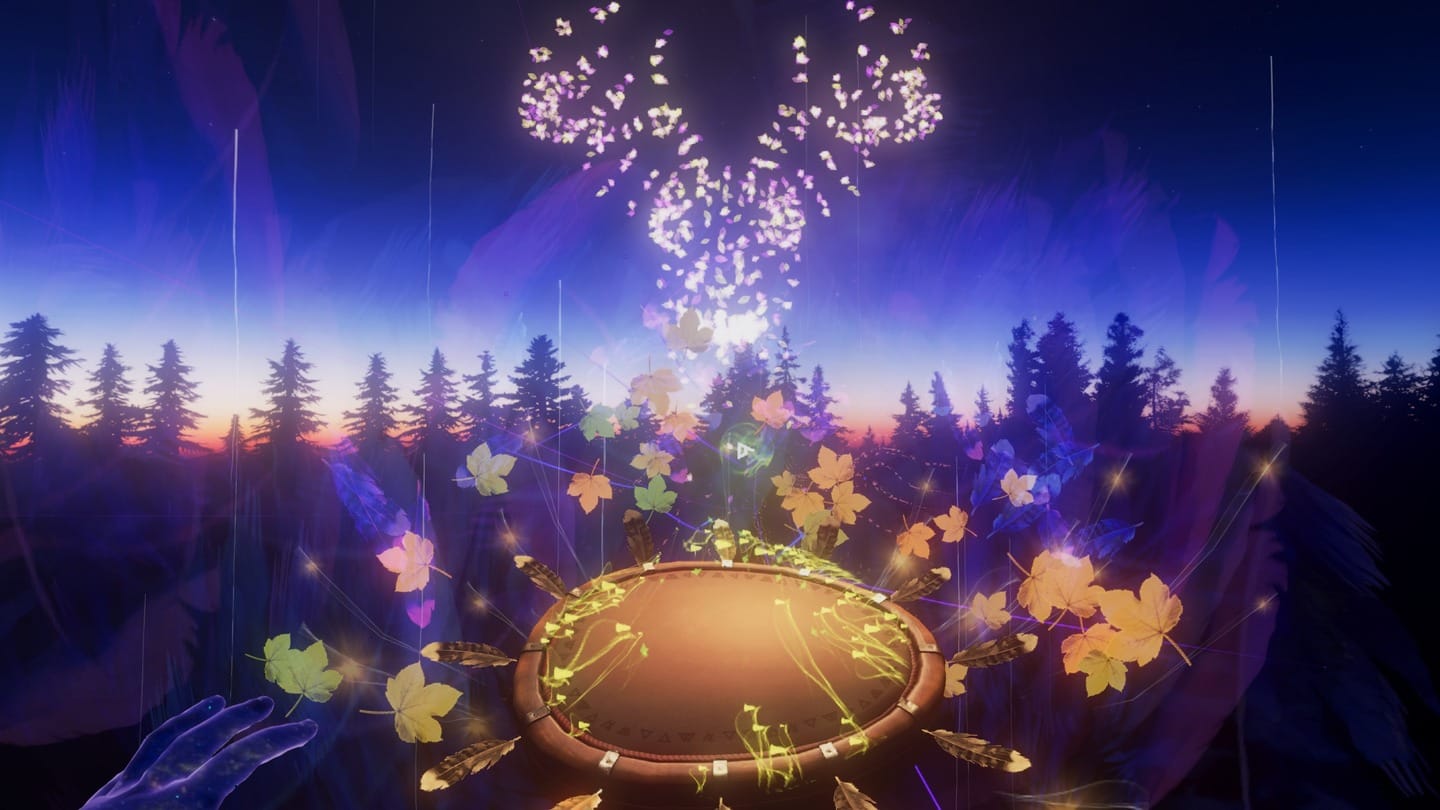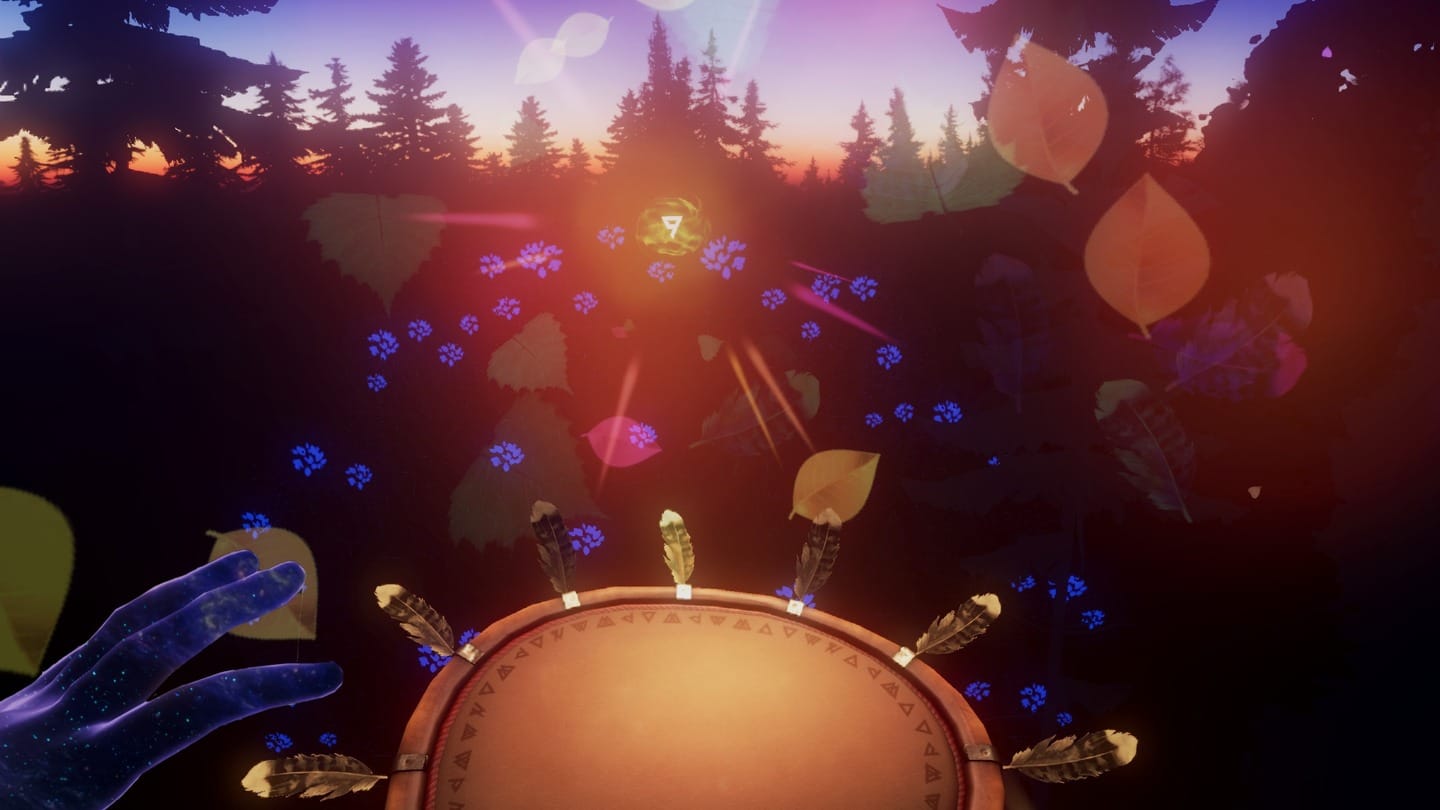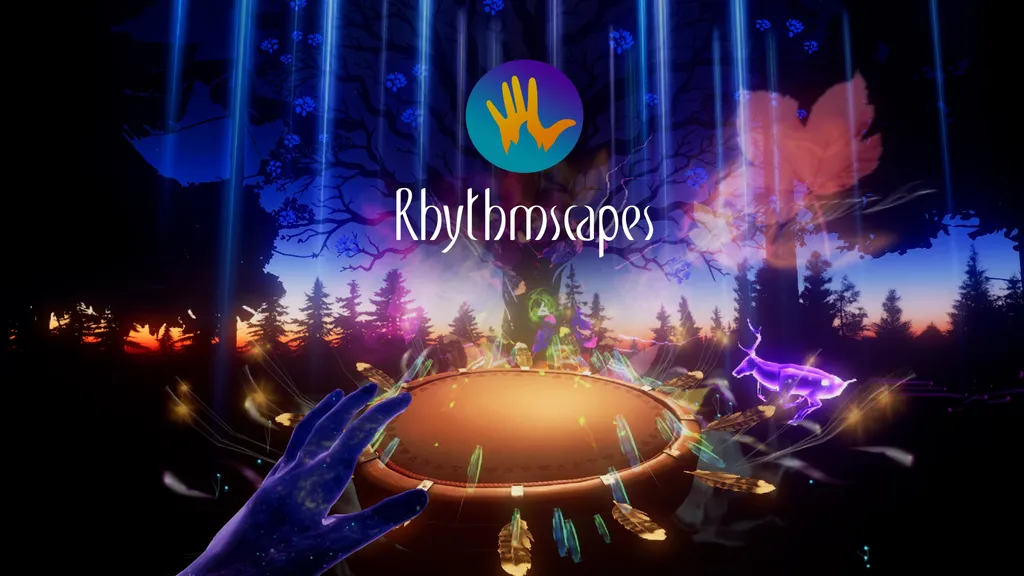VR rhythm games have the potential to be soothing and meditative when done correctly, and that's exactly what Rhythmscapes seeks to achieve.
Describing itself as a blend between rhythm gaming and meditation, this is a game deliberately minimalist in execution that aims to bring a calming edge to the typically-score heavy and competitive category. Indeed, as I put on the headset in the bustling halls of Tokyo Game Show, complete with noise-cancelling headphones that removed much of the noise made by excited attendees, I'm greeted by little more than a tranquil forest-covered night illuminated only by a single fire. In front of me sat a single drum.
To immerse yourself in the sanctity of this moment and get lost in the music is your only task. Controls are simplified for this very intent: using a Quest 3, the improved passthrough and cameras allow for hand tracking, so the controllers can be discarded. Simply use your hands to tap the single drum without the need to concern yourself with clunky controllers and buttons.
As opposed to picking a difficulty or going through a complex beatmap and getting lost in the challenge of a performance, keeping beat is your only task. Subtle pulses from a glowing ball are your only indication of how to tap the drum, with small flowing balls more explicitly mimicking the expected pattern to hit the drums appearing on the kit for players struggling. You don’t have to be precise, these are simply indicating whether to hit the left side of the drum with your left hand or vice versa.
So, the meditative experience begins. Rhythmscapes will indicate a drum pattern to mimic, so you must reciprocate and repeat it in time with the music as you allow yourself a moment to calm and breathe, before the music evolves and you transition to a new beat. You never get the freedom to hit the drums in a manner that feels most right and natural to how you feel at that moment - if you don’t follow the game’s lead the music simply won’t progress and repeat ad infinitum. The idea is that once you give yourself into its vision, you won’t realize you’re essentially performing a musical game of Simon Says using a virtual bongo.

I will caveat my issues with the game in its current state with this: the environment where the game was demoed was far from ideal. Every year, Tokyo Game Show selects 80 indie titles from a list of submissions to participate free of charge inside their own dedicated indie gaming corner. With this award, each exhibitor gets a small demo space that's about the size of a desk in an artist alley at a convention,. For VR, sitting in front of the space is cramped considering people walk between the narrow alleys between desks.
Coupled with the constant interference of shadows and presences near the camera, I often found the camera would fail to register my hits to the drums, or register additional hits from passers-by. This was frustrating, especially as the audio could sometimes be drowned by the noise of the venue. Still, with the assurance that it works without the presence of thousands of convention attendees shuffling mere meters away and witnessing it working without issue in quieter moments, I won’t mark this against the game.
I'm more concerned about whether the gameplay can actually sustain itself, or even achieve its meditative claims in the solitude of an office or bedroom. I can’t help but compare the game to Starwave, which feels meditative and liberating in how it uses the complexity of rhythm games with an interstellar journey, transporting you from your worries to immerse yourself in the music.

Comparatively, the game's simplicity and repetitiveness isn't pulling me into the music and rhythm of the sonic landscape, nor is the visual stimulation of the light show engaging enough to pull me into its vision of a truly relaxing journey. Rather, I found myself somewhat bored, sometimes missing visual cues to move into the next simplistic rhythmic pattern from a lack of interest. The visual indicators are so obvious they just feel intrusive, rather than blending more seamlessly into the environment created by the British-based developers.
Without the hectic nature of an event, this perhaps could be a better experience. But the demo at the show, for better or worse, is at least representative of all the features currently promised by developers for the full game. The balance between simplicity for relaxation and engagement is a difficult one, and so far this is lacking in this rendition of the game.
noise-cancelling


























